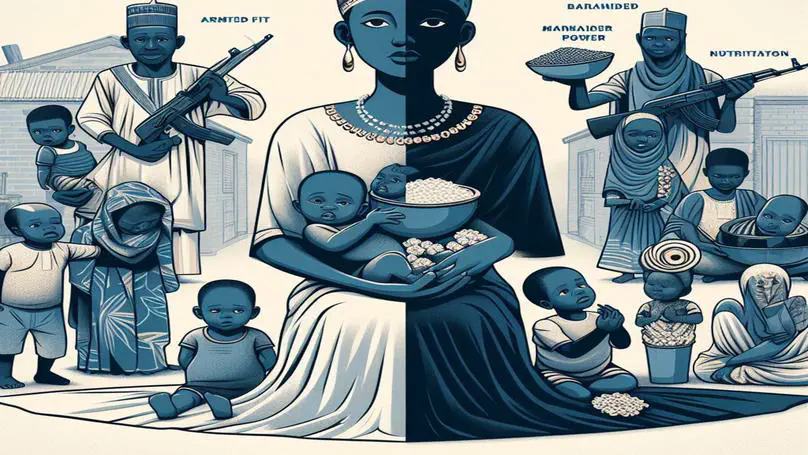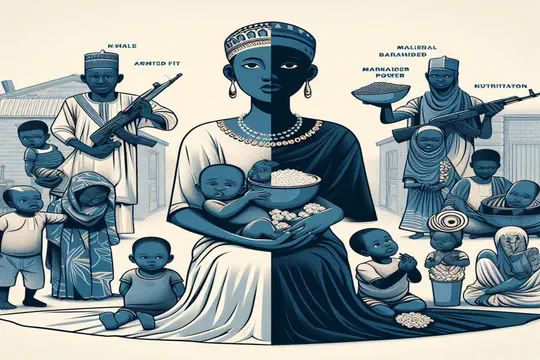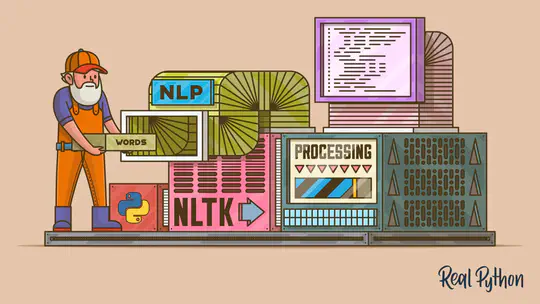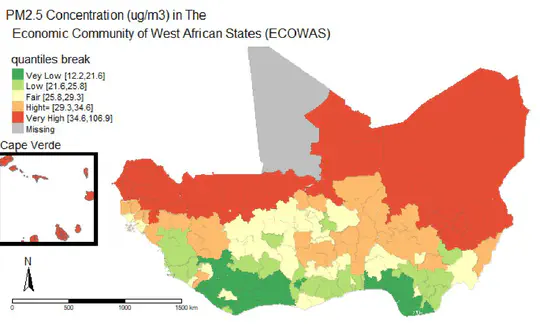IBRAHIM KASSOUM Habibou
Ph.D. candidate in Development Economics & Data Scientist
University Clermont Auvergne - CERDI - CNRS - IRD - France
Hello👋
I am a Ph.D. candidate in Development Economics at the University Clermont Auvergne and a Data Scientist from the École Nationale de la Statistique et de l’Analyse de l’Information (ENSAI-Rennes). I am particularly interested in nutrition and health issues in developing countries, with a special focus on using machine learning techniques to address these challenges. My favorite letter in the alphabet is and my favorite animal is (I actually only swear by these two tools!). I strongly believe in the power of open science which is why I have made the replication codes for some of my projects available on my Github account. In my free time, I enjoy playing football, running and learning new skills online.
Download my CV
- Development Economics
- Nutrition and Health
- Applied Microeconomics
- Data Science and Machine Learning
Ph.D. in Economics, 2026 (expected)
University Clermont Auvergne
M.Eng. in Data science, 2022
École Nationale de la Statistique et de l'Analyse de l'Information (ENSAI-Rennes)
M.Sc. in Theoretical and Empirical Economics, 2022
Aix-Marseille School of Economics (AMSE)
B.Eng. in Statistics and Applied Economics, 2020
École Nationale de la Statistique et de l'Analyse Économique (ENSAE-Dakar)
Skills
Work experience
- Managed DHS datasets from several Sub-Saharan African countries;
- Performed statistical analyses;
- Prepared detailed research reports, presented findings and coached several interns.
- Assisted in collecting, wrangling and organizing data from WHO for several Sub-Saharan African countries;
- Achieved statistical analyses to assist senior researchers in drawing meaningful research findings;
- Developed machine learning algorithm to assess the efficiency of health aid.
- Collected data and analyzed the evolution of the French car market over the last years;
- Applied time series analysis techniques to forecast the French car market in the upcoming years;
- Formulated actionable policy recommendations based on data-driven insights to guide future strategies and decisions in the French car market.
- Developed a data collection application for a survey data and data management;
- Applied the KE XU methodology as outlined by the WHO to analyze household health expenditures and identified households vulnerable to catastrophic health expenditures;
- Conducted an examination of the intricate interplay between poverty and health expenditures.
- Managed and performed data quality analysis on survey data from Niger;
- Estimated malnutrition rates using survey data from Niger;
- Interacted closely with the NIPN team to use statistical software and interpret results.
Teaching experience
During my current PhD position, I have had the privilege of serving as a teacher assistant where I have been actively engaged in facilitating tutorial sessions for students in the fields of statistics and probabilities. My course load includes:
-Introduction to R Programming: this 8-hour course is designed for Health Economics students to develop essential data analysis and visualization skills using R and RStudio. We covered topics such as: * Fundamentals of R and RStudio (data types, importing data, basic manipulations); * Data wrangling with tidyverse (filtering, transforming, and combining datasets); * Data visualization with ggplot2 (creating and customizing professional graphics); * Real-world applications in Health Economics (COVID-19, blood storage, medical data analysis). 📚 Course materials are provided in an R Markdown book format here for interactive learning.
- Inferential statistics with Pr Anne Viallefont. We covered topics such as:
- estimation (definition of an estimator, bias, variance, convergence, etc.);
- confidence intervals and significance levels (for mean, variance, bias correction, etc.);
- hypothesis testing (comparing two means, variances, or distributions, etc.).
- Probabilities and mathematics with Pr Marie Eliette Dury. We covered topics such as:
- probability distributions and approximations (normal, Poisson, binomial, etc.);
- matrix calculation (calculation of the determinant, eigenvalue, inverse, diagonalization, etc.);
- numeric sequence (arithmetic and geometric sequence, recurrence equation, etc.).
Education
ENSAI is one of France’s most prestigious Grandes écoles d’ingénieurs specialized in Data Science. It’s courses content include:
- Machine Learning:
- supervised learning (e.g., regression, decision trees, neural networks, random forest, etc.);
- unsupervised learning (e.g., k-means, hierarchical clustering, KNN, NLP, etc.);
- deep learning (e.g., CNNs, LSTMs, RNNs, GANs etc.).
- Statistics and Mathematics:
- descriptive statistics (mean, outliers, etc.) and distributions (normal, Poisson, etc.);
- algebra and calculus (matrices, limits, optimization etc.);
- probability and hypothesis testing (significance level, confidence interval, p-value, t-test, etc.).
- Computer Science:
- database computation (with SQL and MySQL);
- data visualization and analytics (with matplotlib, ggplot2, dashboards, etc.);
- programming languages: Python, R, Stata and SQL.
AMSE is a joint research unit of the CNRS jointly supervised by Aix-Marseille University (AMU), Centrale Méditerranée and the School for Advanced Studies in the Social Sciences (EHESS). The core courses of the ETE master include:
- Advanced Microeconomics and Macroeconomics:
- economics of taxation (why taxes, first best taxation, etc.);
- growth theories (endogenous growth and poverty traps etc.);
- the empirical evidence (e.g., growth and inequality, industrial revolution, the role of institutions, etc.).
- Advanced Econometrics:
- resampling methods (e.g., monte carlo experiments, bootstrap, permutation tests, etc.);
- nonparametric econometrics (e.g., density estimation, finite mixture models, etc.);
- econometrics and machine learning (philosophy and general principle, misspecification detection, etc.).
- Development Economics:
- human capital (nutrition, education, health, etc.);
- financial capital (microfinance and micro-savings, access to credit, etc.);
- physical capital (property rights and technology adoption, etc.).
ENSAE is a higher education institution that is a member of the African Schools of Statistics Network (RESA). The core of the program are:
- Statistics and Probabilities:
- hypothesis testing (constructing a test, calculating p-values, t-tests, etc.) and analysis of variance;
- conditional distribution and Bayesian inference;
- estimation techniques (maximum likelihood estimator, dealing with bias and variance) and sampling methods.
- Computer Science:
- data mining using Python and R (data wrangling, data engineering and machine learning);
- database management (with SQL and MySQL);
- introduction to web development technologies such as HTML, CSS, PHP, JavaScript, and C.
- Machine Learning:
- time series analysis and forecasting (models of type ARIMA, SARIMA, ARCH, etc.);
- multidimensional Data Analyst techniques (e.g., CA, PCA, MFA, AFDM, etc.);
- various supervised and unsupervised algorithms (e.g., regression, clustering, decision trees, etc.).
Working papers

This paper examines the impact of armed conflict, specifically the Boko Haram conflict in Nigeria, on children’s nutritional outcomes. It also investigates how maternal bargaining power can mitigate these effects. The findings suggest that children born to women with low bargaining power are more adversely affected by the conflict highlighting the importance of policies to enhance female bargaining power in conflict settings.

This paper examines the impact of armed conflict, specifically the Boko Haram conflict in Nigeria, on children’s nutritional outcomes. It also investigates how maternal bargaining power can mitigate these effects. The findings suggest that children born to women with low bargaining power are more adversely affected by the conflict highlighting the importance of policies to enhance female bargaining power in conflict settings.
Projects
Popular Topics
Contact
Feel free to get in touch with me! Whether you have questions, suggestions or simply want to say hello, I’d love to hear from you. You can reach me through the contact form, email or phone number provided below. I look forward to connecting with you.
- Habibou.IBRAHIM_KASSOUM@doctorant.uca.fr
- 04 73 17 74 08
- 26 Avenue Léon Blum, Clermont-Ferrand, Auvergne-Rhône-Alpes 63000
- Enter Building 1 and take the stairs to Office 427 on Floor 4
-
From monday to saturday
From 08 AM to 08 PM - Skype Me
- Zoom Me






